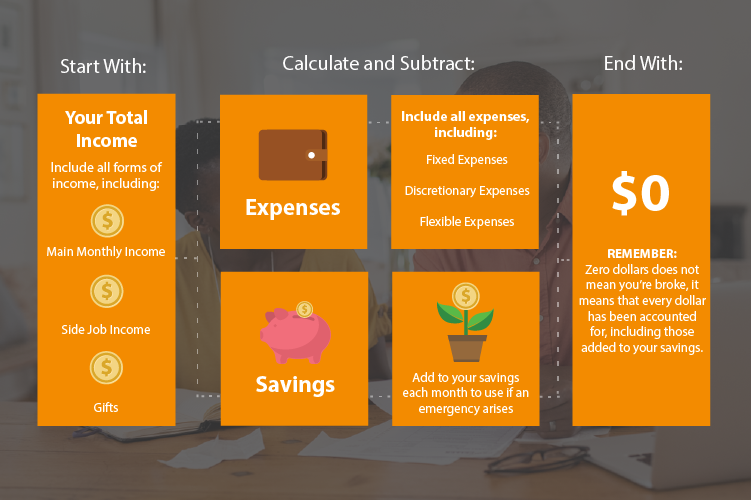By Sabrina Lamb – Founder and CEO of WorldofMoney.Org
Budgets are One of the Best Tools in your Financial Security Toolbox
Budgets often get a bad rap. When people hear the word, they immediately think it means cutting back on doing the things they like, which often involve spending money.
In reality, a well-thought out budget lets you do more with your money, have greater financial peace of mind, and stay secure if an emergency like losing your job or getting an expensive medical bill arises.
Understanding and creating a budget requires a little knowledge and self-reflection. Master Your Card is here to help guide you through making an effective budget.
Understanding Budgets
A budget is a detailed written plan for how to spend your money. It follows the general principle that Income – Expense = Zero Dollars at the end of the month. Zero Dollars does not mean you’re broke, it means that every dollar has been accounted for, including those added to your savings.
Budgets contain three types of line items:
- Your income
- Your expenses, which can be categorized as fixed, flexible and discretionary.
- Fixed expenses: necessary expenses that you need to account for every month – such as food, rent, mortgage, student loans, utilities, insurance, and transportation.
- Flexible expenses: items you can easily spend less on or eliminate entirely from your budget if need be – such as entertainment, eating out, or spending on hobbies. Several flexible expenses might make up an overall fixed expense – for example, gas and subway might make up transportation.
- Discretionary expenses: items you want to buy, but do not need to spend your money on each month (such as saving money toward a long-term goal, daily coffee and concert tickets).
- Your savings, which you can add to each month and use if an emergency arises.

Making A Budget That Works for You
The most important thing to remember about a budget is that it needs to work for you. Your budget should include the expenses that you need and want each month and should fit in line with your financial goals.
Are you trying to pay off student loans? Make sure your budget prioritizes reducing your debt. Are you saving for a great vacation? Create a bucket of savings just for the trip.
When you first start making a budget, it’s highly unlikely that you will get it right the first month or even within a few months. If over the course of a month, you are noticing that you’re spending more on groceries or another line item than you thought you would, you can easily decrease the amount of money you allotted to another line item and increase your grocery budget.
At the end of each month, note where you spent more or less than you thought you would, and adjust your budget for the next month accordingly. A budget is a framework for you to play with, not a set of iron bars you are stuck behind.
Check out our example below of a monthly budget. Yours will likely look very different, and that is the point! Make sure your budget works for you.

Want more information on budgeting? Check out World of Money and their free app on Google Play and the Apple App Store.
